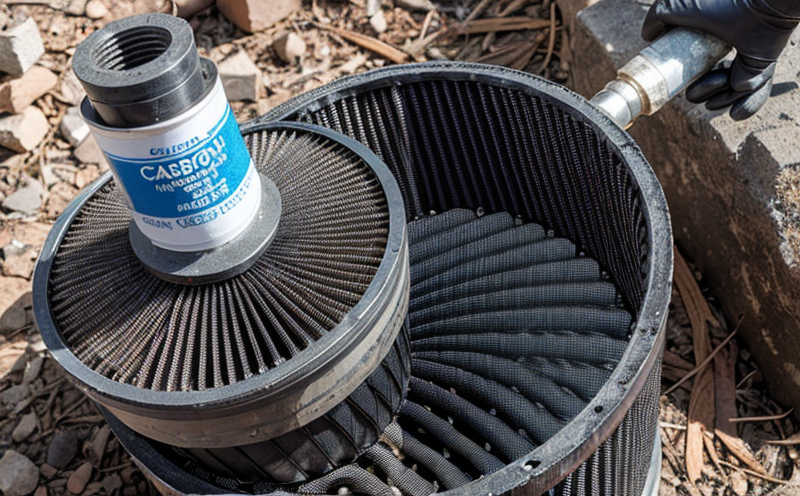Carbon filter inspection
The carbon filter is a crucial component in HVAC and ventilation systems as it helps to remove odors, volatile organic compounds (VOCs), and other air pollutants from indoor environments. Regular inspections of these filters are essential for maintaining the efficiency and effectiveness of HVAC systems while ensuring a safe and healthy indoor environment.
During an inspection, we carefully examine each filter to ensure they meet the required specifications set by international standards such as ISO 16890:2013. This involves checking for any signs of wear or damage that could compromise its performance. The lifespan of a carbon filter depends on various factors including usage frequency, air quality, and installation location.
The inspection process typically includes visual checks followed by functional tests to determine the remaining efficiency levels. Functional testing may involve comparing pre- and post-filter air samples using gas chromatography-mass spectrometry (GC-MS), which provides precise measurements of pollutants before and after filtration. This ensures that the filter continues to effectively capture harmful substances.
A failed inspection can result in reduced air quality, increased energy consumption due to strain on the HVAC system, and potential health risks from unfiltered contaminants. By identifying issues early through regular inspections, you can prevent costly repairs and ensure continued compliance with local regulations regarding indoor air quality.
In addition to detecting failures, our team also provides recommendations for optimal placement of carbon filters within your ventilation network based on airflow patterns and pollutant sources identified during the inspection process. Proper installation is key to maximizing the effectiveness of these filters in improving overall indoor air quality.
Applied Standards
The inspection of carbon filters adheres strictly to relevant international standards such as ISO 16890:2013 and EN 14312. These documents provide detailed guidelines on how to conduct performance classifications for air filtration devices based on their ability to remove particles from the air stream.
Specifically, ISO 16890 defines four efficiency classes (E1-E4) that indicate the minimum percentage removal of particulate matter ranging from very coarse dust down to ultrafine particles. Our inspections ensure that your carbon filters meet these specified thresholds, thereby guaranteeing effective filtration performance throughout their operational lifecycle.
EN 14312 focuses more specifically on residential and commercial air handling units equipped with prefilters designed for removing larger airborne contaminants like pollen or mold spores before they reach the main filtration stage. Compliance with this standard ensures that your HVAC system operates efficiently even under challenging conditions, contributing significantly to both energy savings and improved indoor air quality.
Environmental and Sustainability Contributions
- Reduction of VOC Emissions: By ensuring proper functioning of carbon filters, we help reduce the release of volatile organic compounds into the atmosphere. These chemicals are known contributors to smog formation and can have adverse effects on human health.
- Energy Efficiency: Clean air filters contribute directly to better performance from your HVAC system, which in turn leads to lower energy consumption and reduced carbon footprint associated with power generation needed to run such systems.
The continuous monitoring of these filters plays a vital role in maintaining optimal indoor conditions that promote sustainable practices within buildings. It supports broader efforts towards greener construction methodologies by addressing one aspect of improving microclimates inside structures without relying solely on external environmental factors.
Competitive Advantage and Market Impact
- Regulatory Compliance: Regular inspections demonstrate commitment to adhering to local regulations concerning indoor air quality. This can be a significant selling point for businesses aiming to meet strict standards set forth by government bodies.
- Better Customer Satisfaction: Providing clean and healthy air within your premises enhances customer satisfaction, particularly relevant in hospitality or healthcare industries where maintaining high hygiene levels is paramount.
In today's competitive market, offering superior indoor environmental quality (IEQ) through diligent maintenance practices like regular carbon filter inspections sets you apart from competitors. It establishes trust among clients and stakeholders who value sustainability and safety above all else.





